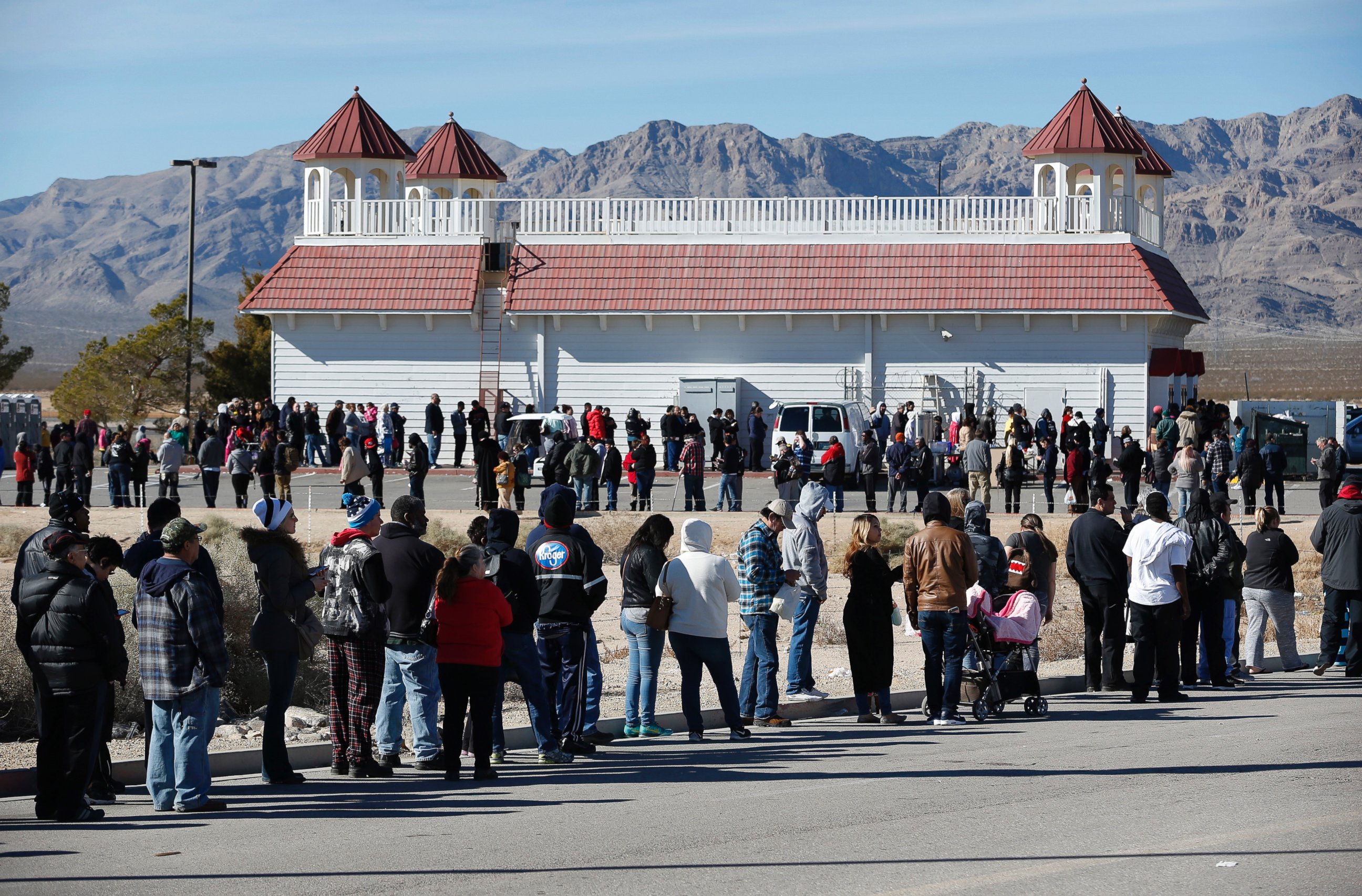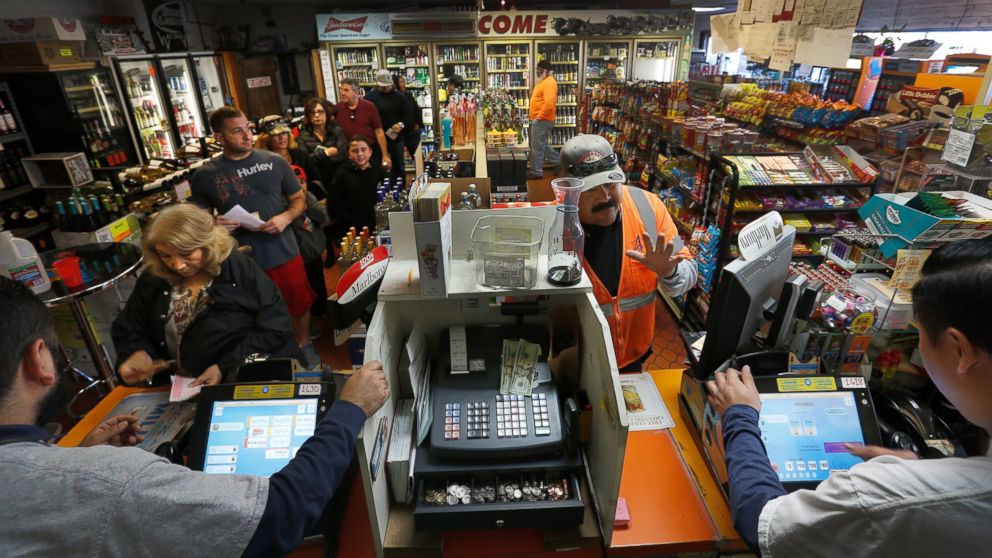13 Powerball Facts You Should Know Before Tonight's Drawing
There are some surprising regulations in certain states.
— -- The hype surrounding tonight’s record-breaking Powerball drawing is very much real.
Here are some of the biggest questions that players have, answered by top lottery officials.
1. How much of the jackpot goes to the winner and where does the rest of it go?
Winners should expect to keep only about a third of the advertised jackpot or cash payout, says Tracey Cohen, the interim executive director of the D.C. Lottery.
The jackpot is currently $1.5 billion and the cash option is $930 million.
The rest of the money is generally taken by federal, state and city taxes based on where the ticket was purchased and where the winner lives.
2. Does the store that sold the winning ticket get anything?
Cohen said that the seller of the winning jackpot ticket will receive a $25,000 bonus from the lottery. That money isn’t taken from the winner’s jackpot but from regular ticket sales and cashing commissions that the lottery collects from every ticket sold.
In D.C., sellers do not receive a bonus for selling a winning Match-5 ticket.
3. Why do some states have more jackpot winners than others?
"It’s pure randomness," Cohen said.
Even if it is random, there may be something in the water in Pennsylvania because 16 previous jackpot winners from the past 13 years all bought their tickets in the Keystone state.
"Some states have been participating in Powerball longer than others, and states with higher sales are more likely to have a winner," said Shelly Gerteisen, a spokeswoman for the Florida Lottery.

4. Have there been cases when people have called in thinking that they’re the winner only to be told that they are wrong?
"Those calls are no fun," Gerteisen said. "It’s more fun when they think they only won a little prize and it turns out they are a big winner!"
Cohen said that similar instances have happened in D.C.
"So I say this: it’s not a winner until you come in and we tell you it’s a winner," Cohen noted.
5. What happens if someone tries to cash in a fake or falsified ticket?
The penalties differ by state and offenders can face criminal charges if caught, Cohen said.
"We take this very, very seriously," she said.
6. Why is this Powerball jackpot so large?
This Powerball jackpot started out as $40 million on Nov. 7, 2015, but there was no jackpot winner in that drawing or the 19 others that followed.
7. How many tickets have been sold?
Since this jackpot started on Nov. 7, 1.325 billion tickets have been sold, according to the Texas Lottery. Officials at the lotto expect that number to go up to 1.55 billion by the time the drawing happens at 10:59 p.m. E.T. tonight.
Not all of those tickets are eligible for tonight’s drawing, however. There have been 371 million tickets sold for this upcoming drawing, according to Gary Grief, the executive director of the Texas lottery and chair of the Powerball game for the Multi-State Lottery Association.

8. What are the chances that a wining ticket has already been sold?
Grief said 85.8 percent of all Powerball ticket combinations have been sold thus far.
9. How do officials know if a winning jackpot ticket has been issued?
Ticket numbers are run through a central computer at the Multi-State Lottery Association. The computer can match the winning ticket with the numbers drawn from the machines in Florida.
"It’s a little bit like election night," Cohen said of how the results need to come in from the various districts, which in this case would be the 44 participating states as well as District of Colombia, Puerto Rico and the U.S. Virgin Islands.
10. Do people need to say whether or not they want the cash option or the annuity option when they buy their tickets?
It depends on the state, Gerteisen said, but some states require buyers to decide right then and there.
11. How does the annuity option work?
If a winner chooses to get the full jackpot through the annuity option, the winner will receive that amount in a series of 30 payments over 29 years, according to the Powerball website. The annual payment may differ slightly year-to-year based on the payouts from the securities investments that the lottery (in this case Powerball) chooses to invest in. The winner will get at least the annual prize payment “no matter what happens to the securities,” the site explains.
12. How long do winners have to claim their tickets? And how can a ticket be claimed?
The exact claiming period varies slightly per state, but are all generally around 180 days. Players need to sign the back of their ticket to claim the rights to the winnings, and they have to claim their ticket in the same state where they bought their ticket even if they live in a different state.
13. What is the lottery’s connection to state education programs?
Each state’s lottery organization has chosen what causes to support with the funds that are allocated from a jackpot win, and many – but not all -- have selected educational programs as the recipients.
Some states have established general funds that distribute the money among causes including wildlife programs, local emergency services and parks.
Others designate one set cause. In Pennsylvania, lotto funds are used for senior programs while in Georgia all of the funds are spent on education.
14. What are the chances of getting the jackpot ticket?
Each ticket has a 1 in 292 million chance of being the winner. Good luck!




